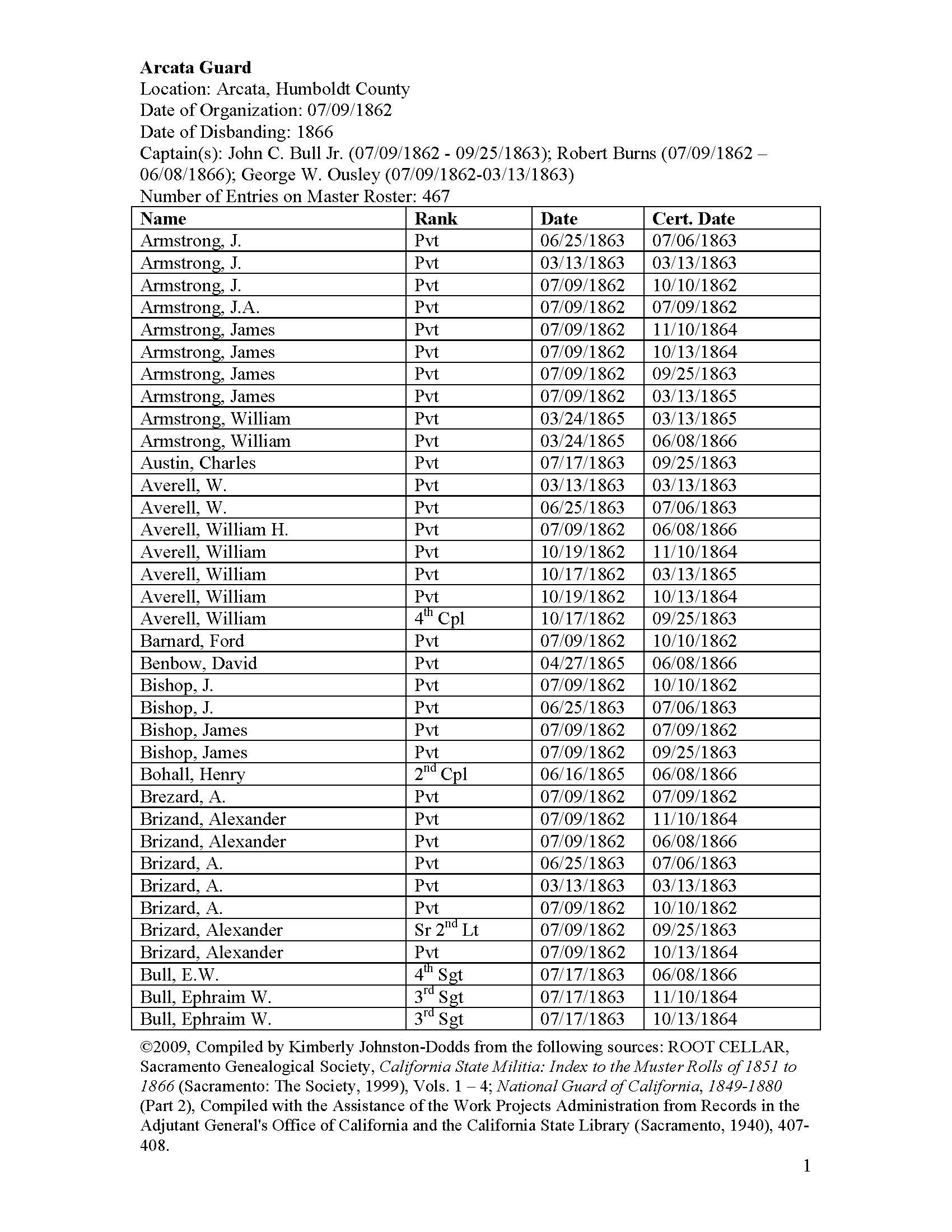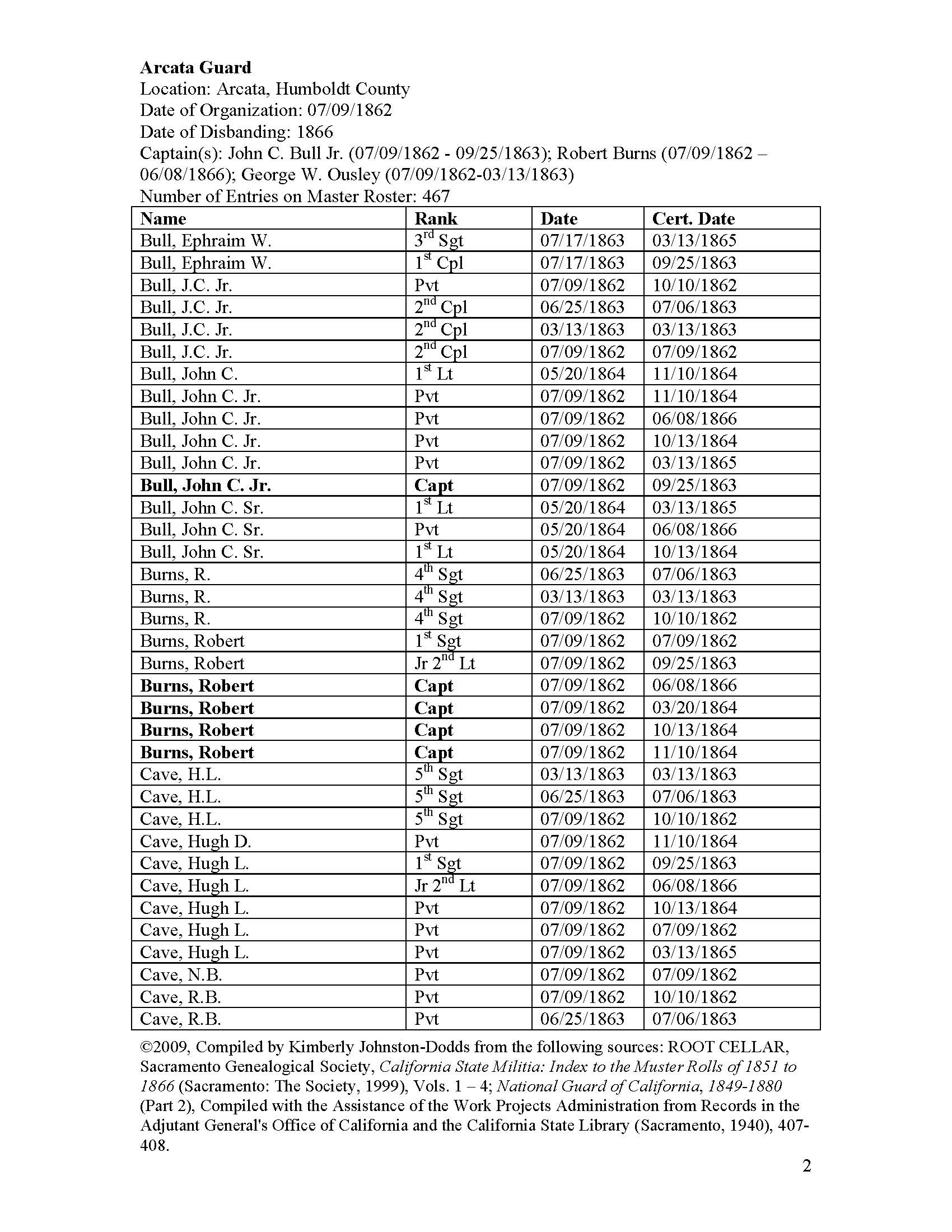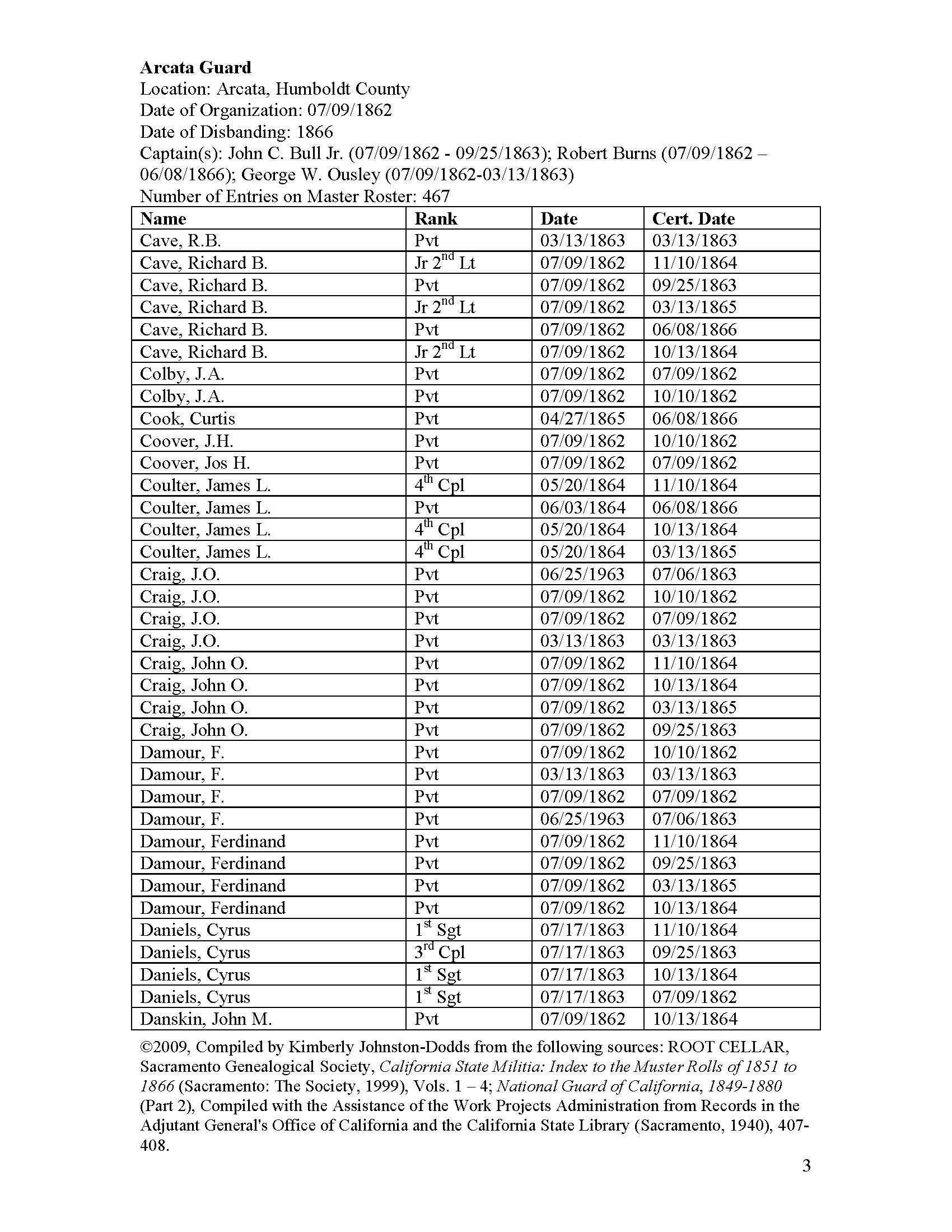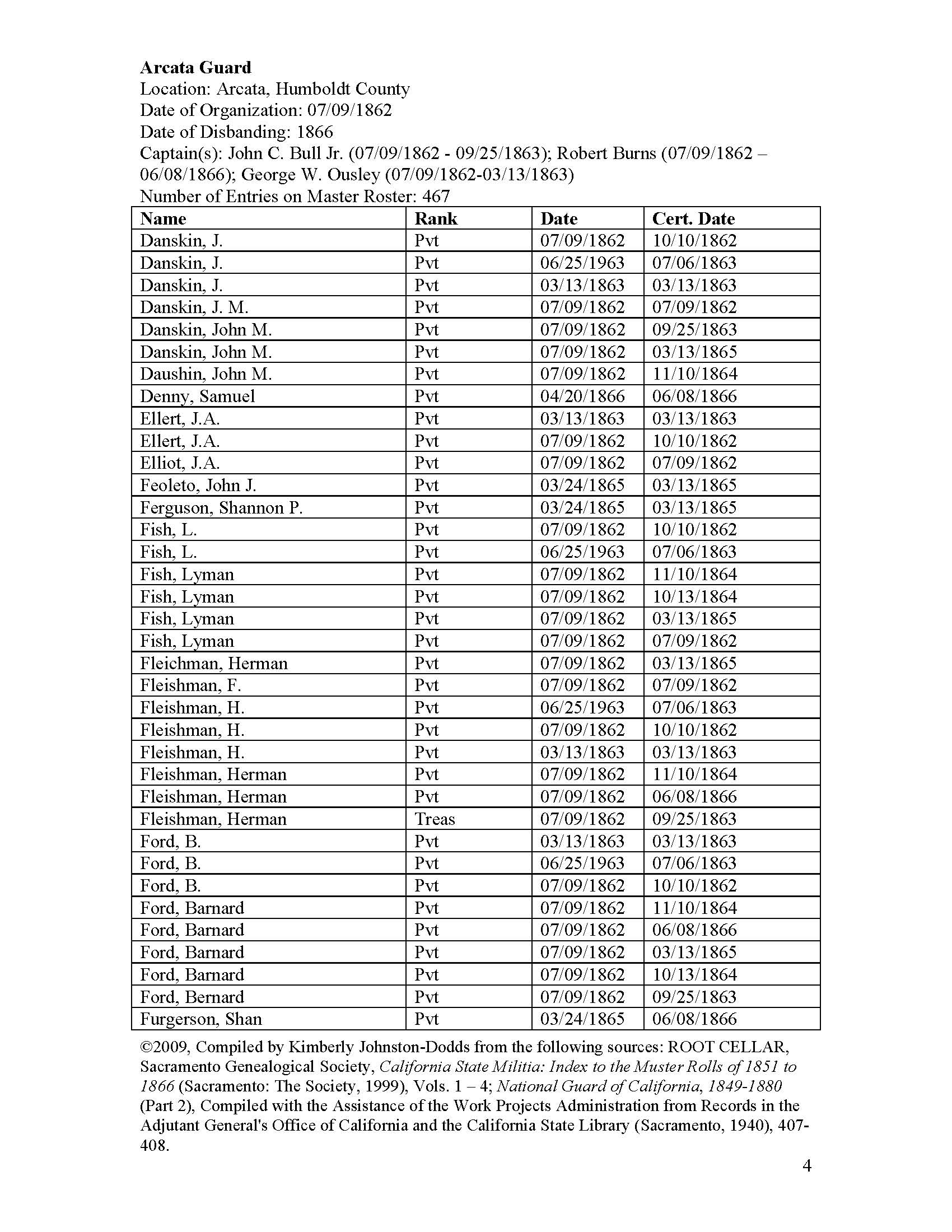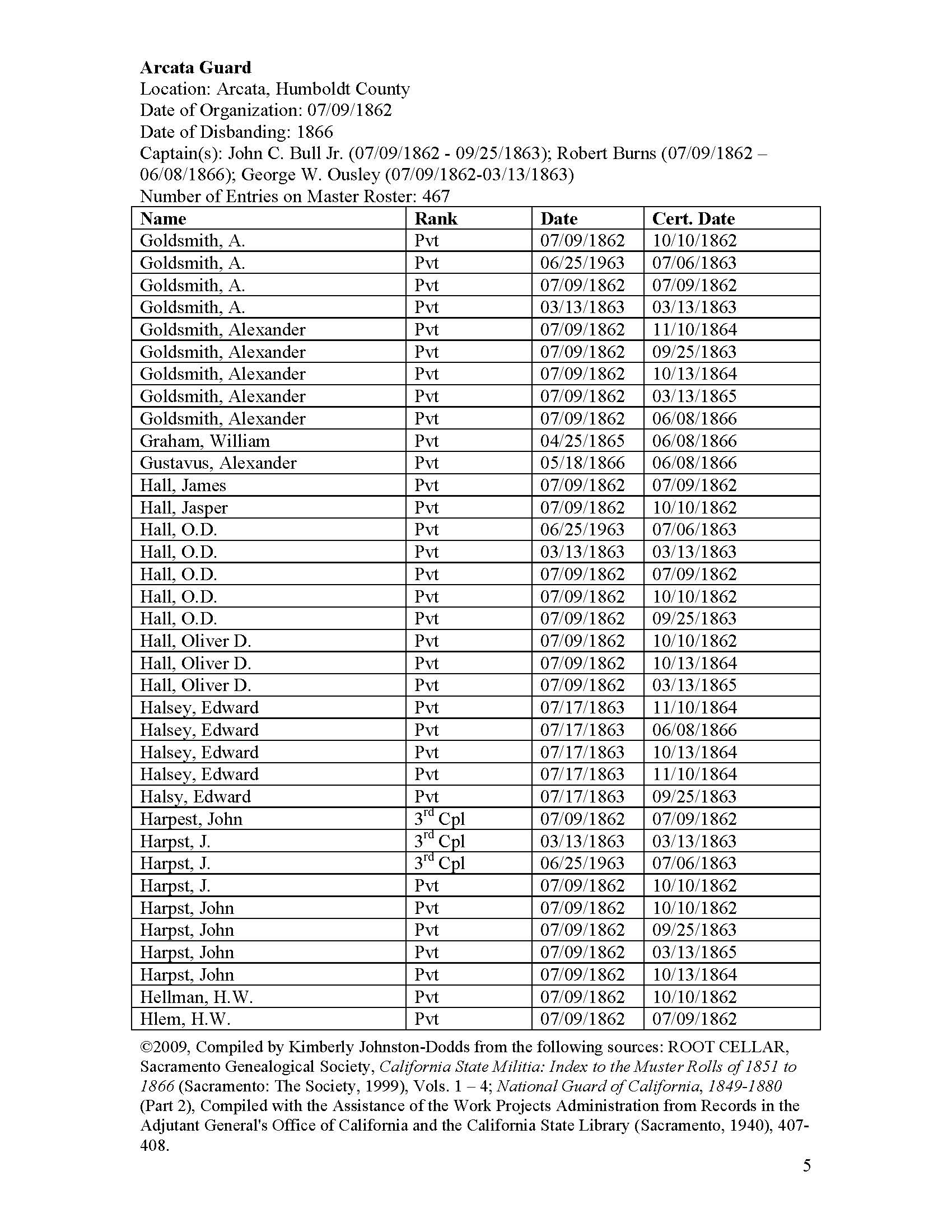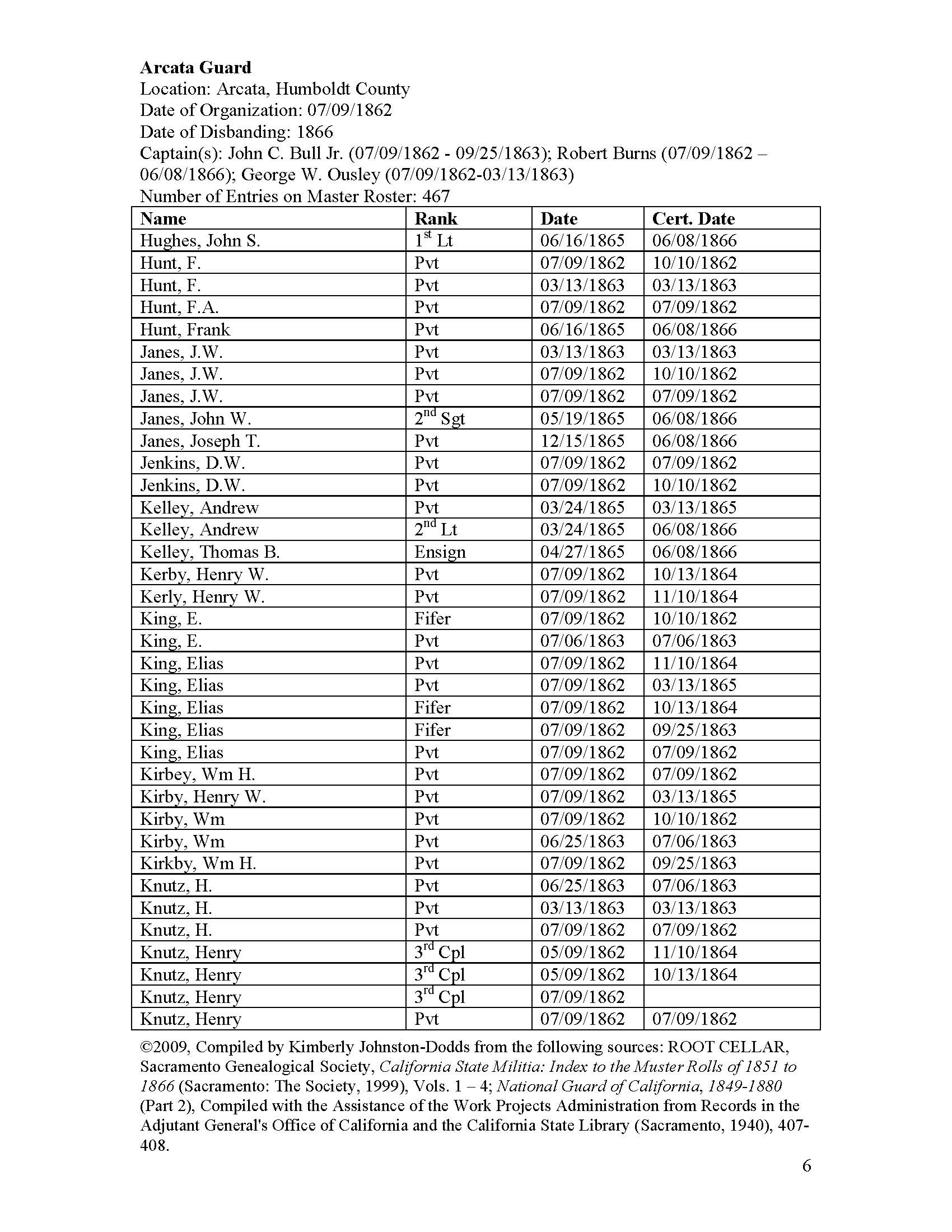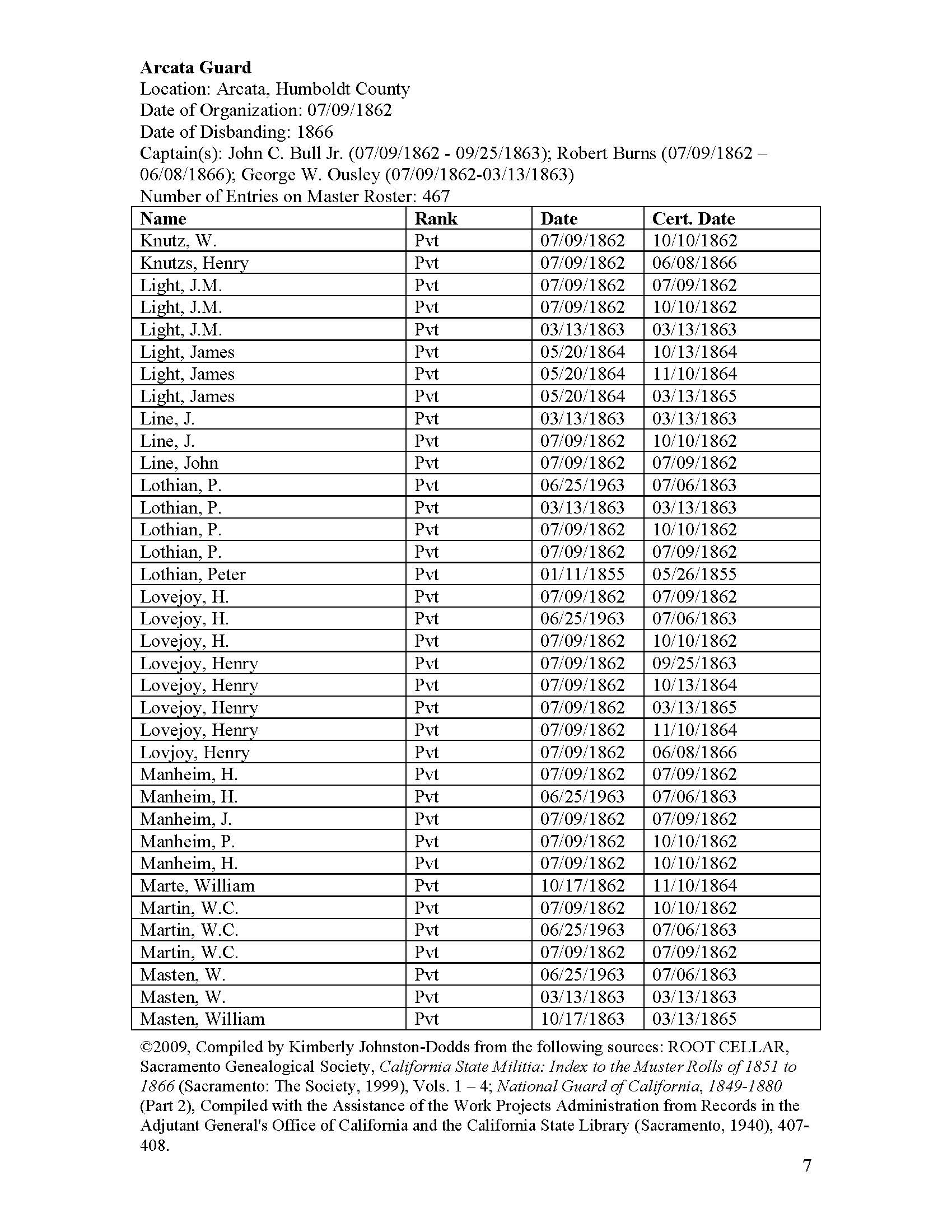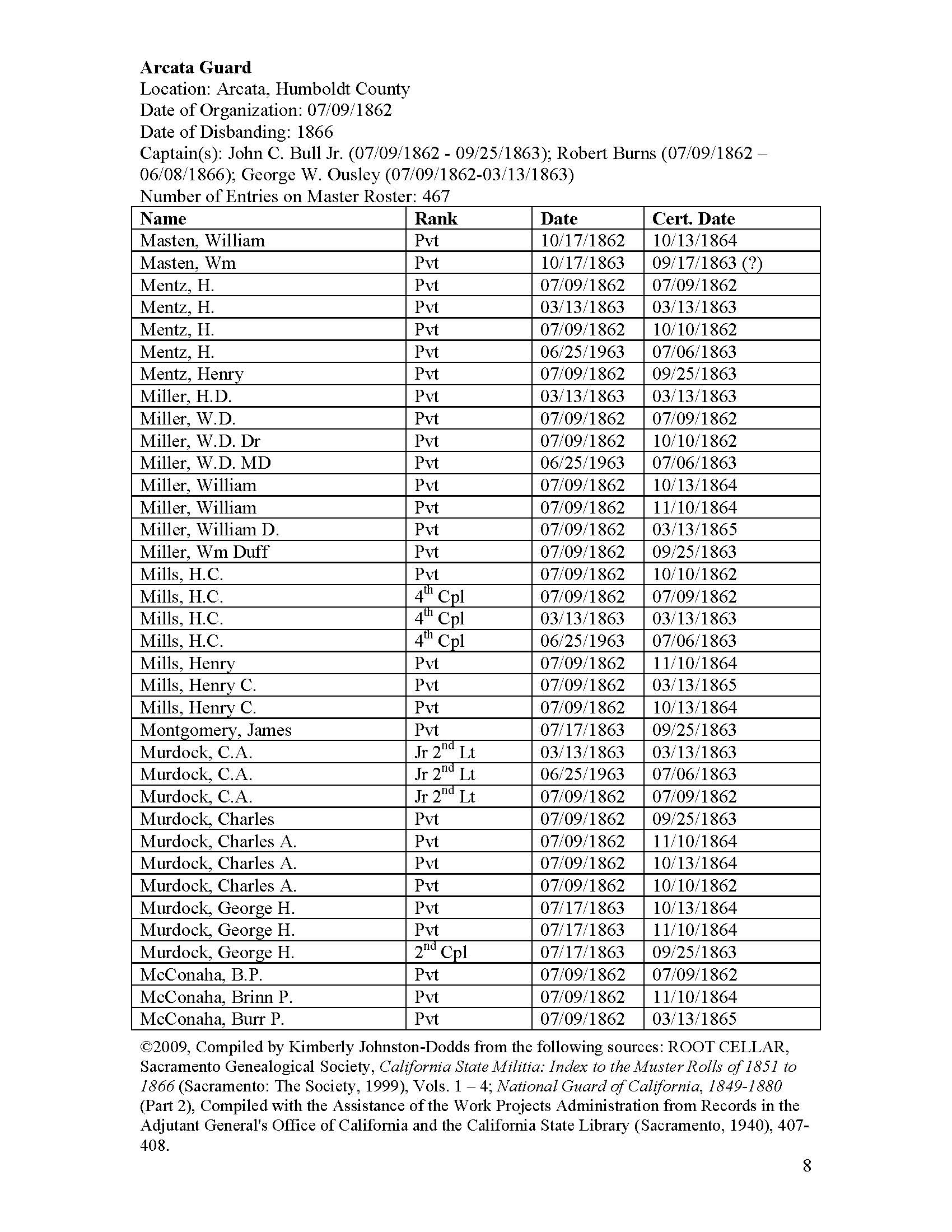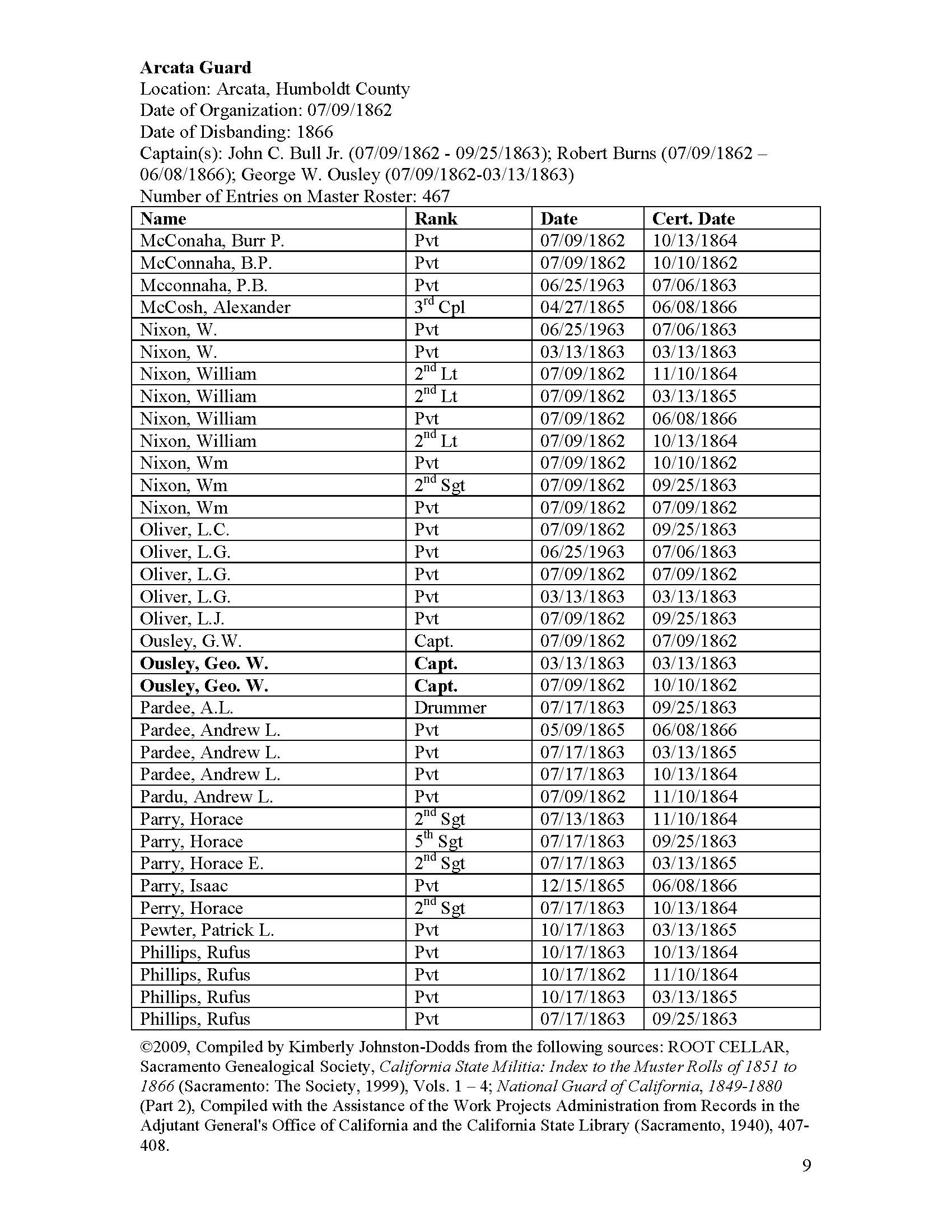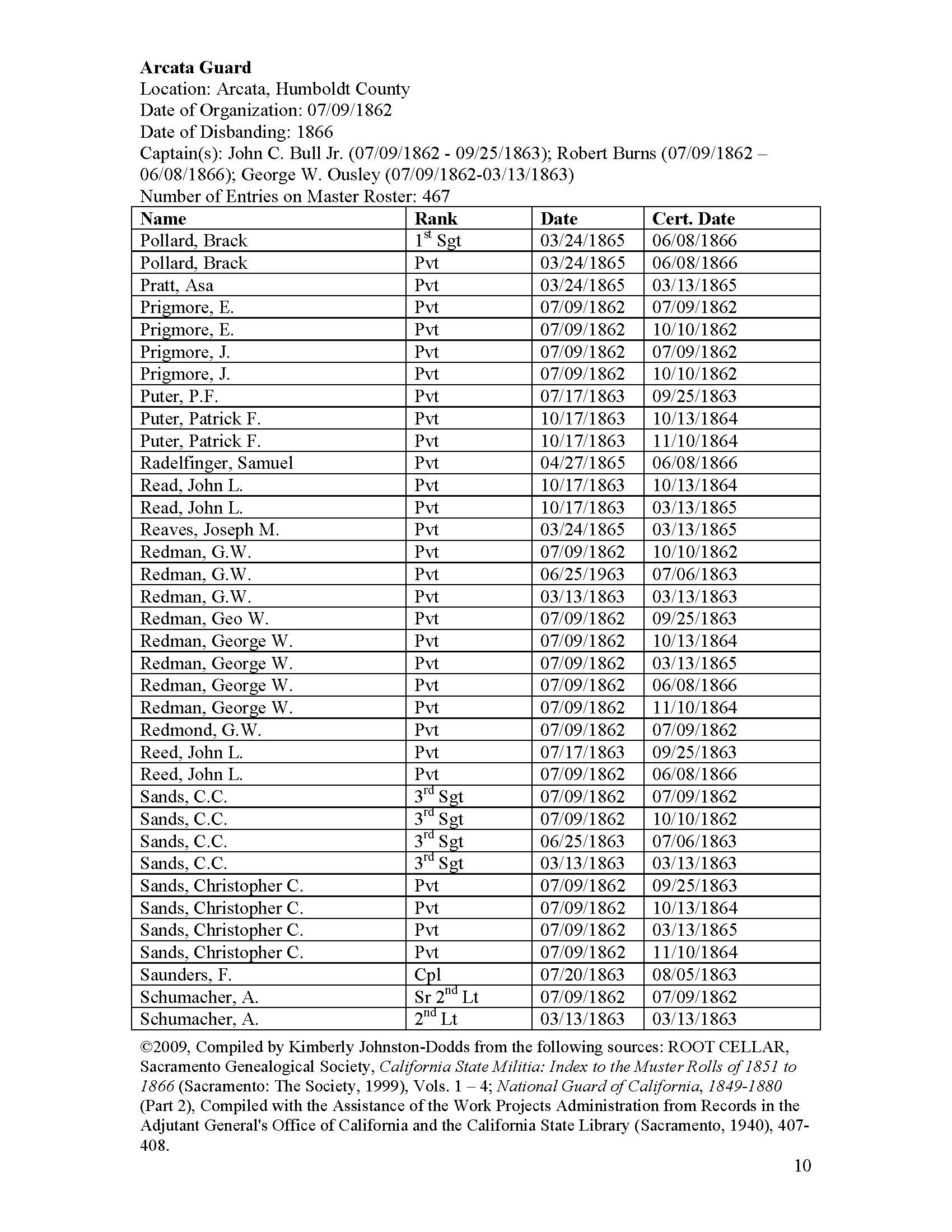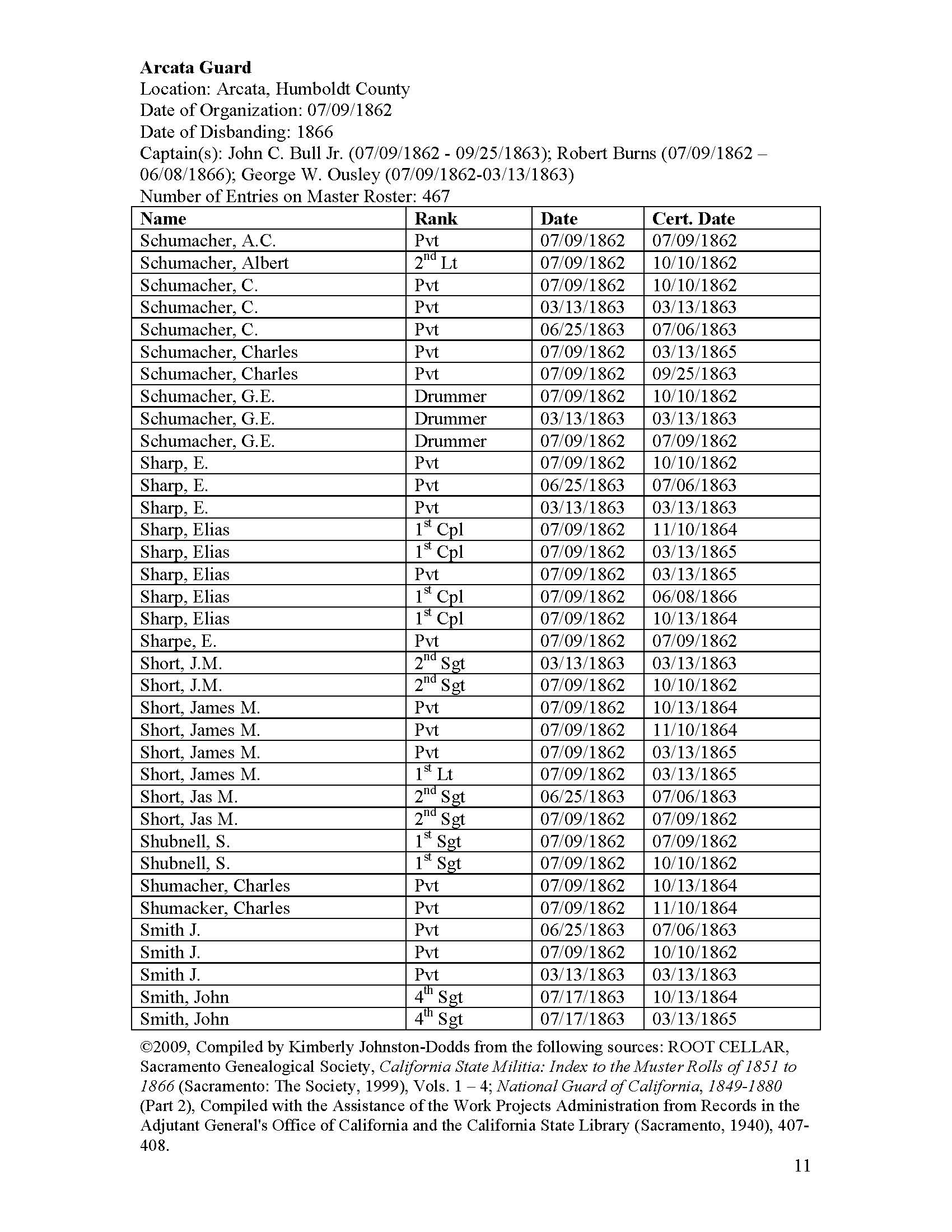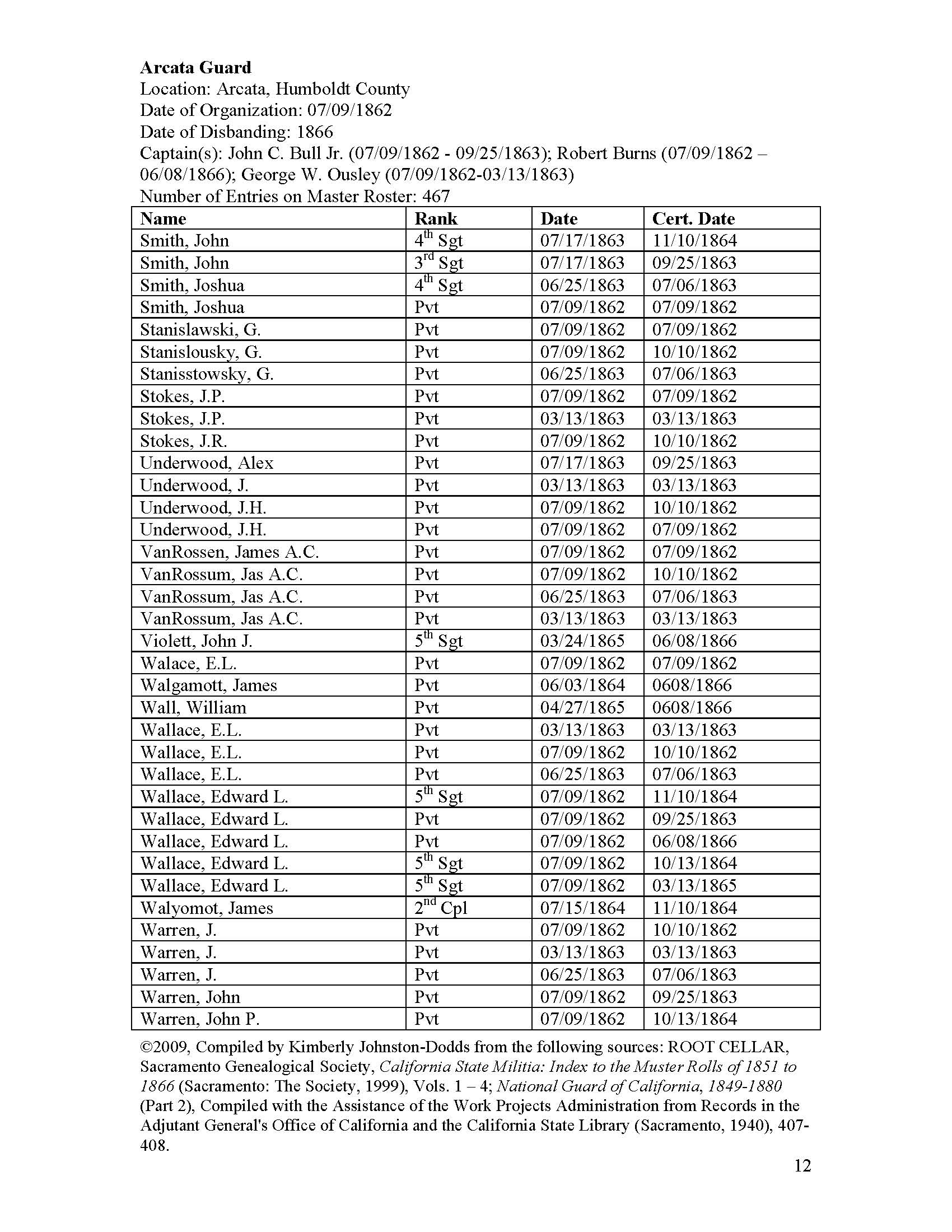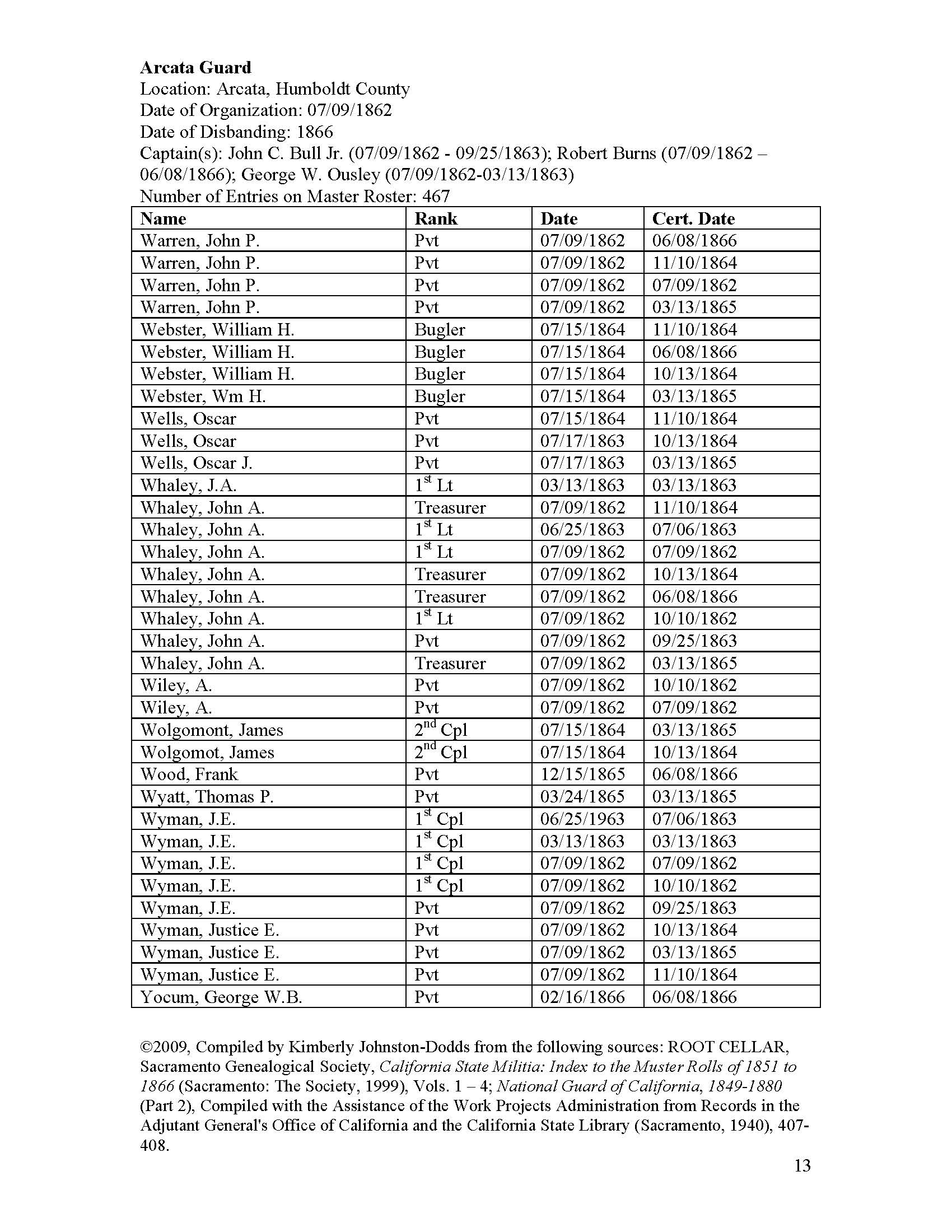Date of Organization: July 9, 1862
Date of Disbanding: 1866
Inclusive dates of units papers: 1862-1867
Geographical Location or Locations: Arcata, Humboldt County
Papers on file at the California State Archives:
a. Organization Papers 3 documents (1862)
b. Bonds 1 document (1864)
c. Correspondence (Unclassified letters) 32 documents (1862-1867)
d. Election Returns 6 documents (1863-1865)
e. Exempt Certificates, Applications for none
f. Muster Rolls, Monthly returns 8 documents (1862-1866)
g. Oaths Qualifications 9 documents (1862-1865)
h. Orders none
i. Receipts, invoices 1 document (1862)
j. Requisitions 2 documents (1862)
k. Resignations none
l. Target Practice Reports none
m. Other none
George W. Ousley, Captain: Elected 9 July 1862, commissioned 2 September 1862
John A. Whaley, First Lieutenant: Elected 9 July 1862, commissioned 2 September 1862
John C. Ball, Captain: Elected 17 July 1863, commissioned 9 August 1863
James Short, First Lieutenant: Elected 17 July 1863, commissioned 9 August 1863
Robert Burns, Captain: Elected 15 July 1864, commissioned 31 October 1864
John Hughes, First Lieutenant: Elected 15 July 1865, commissioned 8 September 1865
In order to check the Indian depredations in Humboldt County several persons, all residents of the town of Arcata, signed a petition and presented it to County Judge A. J. Huestis, requesting that he appoint some suitable person to supervise the organizing of a volunteer company of militia. Judge Huestis appointed John A. Whaley to organize the company, and on July 9, 1862, the unit known and designated as the Arcata Guard was mustered into the service of the State under the command of Captain George Ousley.
Two months after this unit was organized, September twenty-fifth, the members together with another company commanded by Captain Schmidt, came upon a party of Indians. In the encounter that followed twenty-two of the Indians were killed and all their provisions burned.[1] On July 15, 1863, the Indians retaliated by an attack upon the camp of the Arcata Guard in Hoopa Valley. The fighting lasted for four hours. Three of the Volunteers were killed and fourteen wounded .[2] After this last conflict the Indians remained peaceable until the first part of 1864, when they continued their depredations and the Arcata Guard was again called into service. The company attacked a band of Indians near Redwood Creek. The Indians were protected by the construction of log houses, but the buildings were soon destroyed by the Volunteers with the use of a howitzer. The Indians retreated but not before many of them had been killed or wounded.[3] A short time later the Arcata Guard came upon another roving band of Indians and intense fighting followed which lasted for eight hours, resulting in seven of the Indians being killed and ten wounded.[4] After this last encounter peace came to Humboldt County as the Indians were moved to the Federal Reservation.
In 1866, the military system of the State was changed. The militia force was not to exceed eighty companies in all. The uniformed troops of the State were to be designated and known as the National Guard. The State legislature created a Board of Location and Organization having the power to reorganize or disband various companies with reference to the military needs.[5] Upon the recommendation of the Board of Location and Organization the Arcata Guard was not accepted as a unit of the newly organized National Guard, and the company was disbanded in 1866.[6]
Footnotes:
2. Sacramento Union, July 16, 1863, page 2, column 3 .
3. Sacramento Union, January 15, 1864 , page 2, column 3.
5. California Statutes 1865-1866, Chapter DXLI, page 722.
6. Adjutant General Report 1864-1867, page 121.
